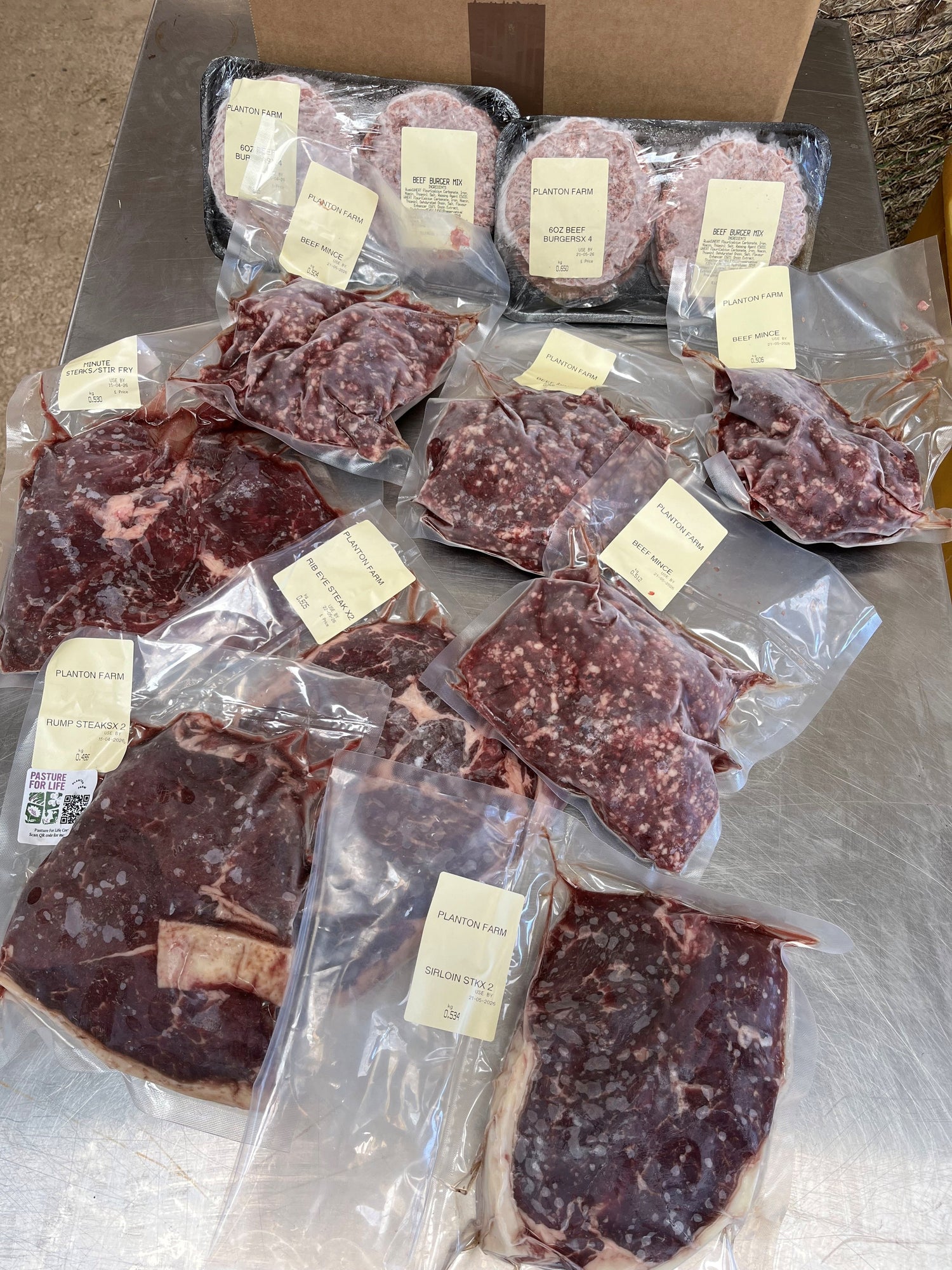Regenerative Farming
Regenerative farming is the basis of a food system which regenerates life.
Technological advances, mostly developed since the second world war in machinery, chemicals and monoculture farming systems, have had unintentional consequences such as declining soil health, water pollution, higher levels of crop and animal disease, lowering nutrient density of food and land more prone to flood and droughts.
The human world is often articulated as separate to nature, perhaps demonstrated most clearly in the idea of “protecting nature”. But we are part of nature, and taking care of it includes taking care of ourselves and each other. Recognising that we are part of nature leads to a recognition that our actions create reactions. We are then more likely to make decisions which will support natural processes, ultimately leading to a more resilient farm.

Six Principles
There are five widely-accepted principles of regenerative agriculture (although we see these as 'practices'):
- Don’t disturb the soil
- Keep the soil surface covered
- Keep living roots in the soil
- Grow a diverse range of crops
- Bring grazing animals back to the land
We like the way Groundswell explains these in more detail.
There is also a sixth and most vital principle, which is Know Your Context; defining why it is you are farming and then bringing that into daily decision-making. For example, are you farming to pay off debt, to grow food for your community, to be the most efficient, to bring back the birds you heard in your childhood, to leave the farm for your children, to lessen the impacts of drought, to use less or no chemical fertiliser, or to be more profitable?
At Planton Farm, we aim to contribute to regenerative food production in the most effective way we are able. For us this means growing and producing nutrient dense food in a way which regenerates our soil, biodiversity and watersheds.
It is so important to do this contextual thinking at an early stage so you can make the best plan for you and your farm. Regenerative farming is less prescriptive than other ways of farming and so there aren’t generic steps to follow; each farm is different and so each regenerative transition will be different.

Watersheds
When managing land, we are managing watershed: an area of land that drains rainfall into streams, rivers and ultimately the sea. We want to regenerate our watersheds to be able to hold onto more water to keep grass and plants growing through droughts, and to hold onto water in high rainfall events to prevent flooding further downstream. We must also ensure that clean water is cycling through our system, not picking up chemical or excess nutrient residue whilst it is on our land or in our watershed.
Mimicking Nature
When we talk about mimicking nature in regenerative agriculture, we have to think about what that means in practice. At Planton we stood back and observed what was here, did some research into the history of the area, looked at maps old and new.
We have landed on the assumption that this, like much of England, would have been open wood pasture; grazed by large ruminants in the form of the now extinct forest bison and rooted by wild boar, with wild birds high in number and variety. Diverse and multi-layered trees, plants, fungi, shrubs would have blanketed the ground; their fruits, roots and leaves providing food for the animals and birds and the totality of this ecosystem growing an abundance of nutrient dense food for people.
So, at Planton Farm, we have a suckler herd in the role of bison, pigs to represent the wild boar, chickens for an element of birds providing human food and a Countryside Stewardship agreement which supports our management to recreate diverse and species rich pastures and open wood pastures.
Diversity
Diversity is key. Bring in diversity and things will start to change.
At Planton Farm for example, this has meant moving from being a set-stocked sheep farm to a diverse perennial and livestock farm.
Society is built upon healthy soil and so we start there - but we can also regenerate biodiversity, and we need to; the UK is one of the most nature-depleted countries in the world. Animals are an integral part of a farm or ecosystem, whether they are farmed or wild, and how we take care of these animals impacts on the functioning of our ecosystem.
